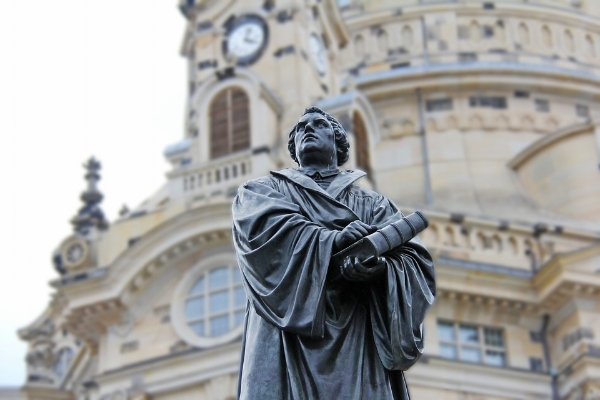In honor of the 500th anniversary of the Protestant Reformation, I'm taking some time to reflect on what the Reformation means today. If you'd like to learn more about the Reformation, see my post "Protestant Amnesia: What's So Important About the Reformation?"
When we think of Martin Luther, it's typically as a fiery Reformer. He's nailing the Ninety-Five Theses to the church door in Wittenberg (though there's some debate whether the nailing actually happened). He's engaged in hefty theological disputations, defending his understanding of salvation by grace through faith. He's a larger-than-life figure. He's a genius with a witty and cutting pen.
But Luther was above all a pastor. His ultimate concern wasn't the intense theological debates - it was the normal every-day Christians who were being led astray. He saw the way the Church's theology affected the simple German folk in his parish, and he wanted desperately for them to know the Gospel and to be free of the intense fear of a conscience haunted by God's judgment. His theology wasn't coming from a theoretical, scholarly high ground. It was intensely practical and pastoral, driven by real people.
The Ninety-Five Theses were at heart a pastoral concern about how peasants were being manipulated into giving money they couldn't afford to give up in the name of something morally and theologically suspect.
Luther once said he preached his sermons with the servants and children in mind, keeping the ideas simple and straightforward so that anyone could understand and learn.
He translated the Bible into German so it could be read and understood by laypeople. He rewrote a new worship service, also in German, so that it would be in churchgoers' own tongue, to be understood and followed.
One of my favorite examples is Luther's A Simple Way to Pray, dedicated to Master Peter the Barber. Do you see how powerful this is? This great man - one of our church history giants, who wrote to kings and the pope - also took the time to write to an ordinary German man, his friend, a barber, to explain how to pray. (I would recommend you take a look at this one - it's still incredibly insightful!)
It's easy to get caught up in theology or theory or debates. But Martin Luther reminds me that to do so for its own sake is missing the point. Christianity should never become so heady that it becomes distanced from or feels inaccessible to normal, every-day Christians. It is for the everyman (and woman), for the ordinary.
The message of the Gospel is not far from us. It is not beyond our comprehension or understood only by those with advanced degrees. It is simple. It is for us. And the church's ministry should be too.
Soli Deo Gloria




